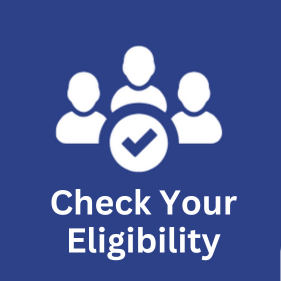GMAT (GRADUATE MANAGEMENT ADMISSION TEST)
The Graduate Management Admission Test is a computer adaptive test intended to assess certain analytical, writing, quantitative, verbal, and reading skills in written English for use in admission to a graduate management program, such as a Master of Business Administration program.
Pursuing a graduate degree is a rewarding, life-changing experience, and the GMAT exam is part of that process! Demonstrate your commitment and readiness to succeed in business school by taking the most widely used exam for admission to graduate business and management programs.

GMAT BY THE NUMBERS:
The GMAT exam helps business school candidates stand out during the admissions process.Schools know that candidates who take the GMAT exam are serious about earning a graduate business degree. They also know it’s a proven predictor of a student’s ability to succeed.Mostly 9 out of 10 new MBA enrollments are made using a GMAT score.
GMAT DOCUMENTS REQUIRED:
Candidates who are planning to appear for GMAT need to have documents beforehand for filling up the registration form.
- Applicant’s name with proper spelling as written on passport
- Contact details (email id and telephone)
- Demographic information- gender, ethnicity, DOB, Citizenship
- Payment details
- Identify data verified or collected at the GMAT test center such as government-issued identification, digital photograph, signature, palm vein pattern
Candidates can appear for GMAT anytime in the year and can book the slot as per convenience.
GMAT Eligibility Criteria:
Nationality – People across the nations can appear for the GMAT. Guidelines, as written by GMAC, are implemented equally to everyone despite being the country they belong to. Different GMAT test centers have specific rules regarding identity proof to be produced at the time of GMAT. Suppose a test taker from India has to produce a passport as ID proof at the time of GMAT. Now Aadhar Card is also considered as prominent ID proof.
Educational Qualification – It is advisable that the test takers appearing for GMAT should have graduated from a recognized university. There are a lot of GMAT test takers who are working professionals.
Age Limit – GMAC has not mentioned any upper limit of age for the candidate. Mostly it is preferred to have the age of 18 years. If a test taker appears for GMAT between 13 and 17 years then one needs a permission letter on behalf of parents.
Minimum Cutoff – To appear for GMAT, there are no cut-off marks to appear for GMAT. In all the top business schools in the USA or UK, a GMAT score is considered an admission requirement.
Learn how to get started on your business school journey:
The GMAT exam opens the door to a world of possibilities. Whether you are applying for a full-time or part-time MBA or Masters program, it is the only test made by business schools for business school admissions.
Gain a Competitive Advantage:
The GMAT exam measures the critical thinking and reasoning skills that are most relevant to graduate businessprograms.Taking the GMAT exam demonstrates your commitment, motivation, and ability to succeed in business school and your career.Show you’re serious about business school with the GMAT exam and put your skills and yourself in the spotlight.
WHERE AND WHEN CAN I TAKE THE GMAT EXAM?
The GMAT exam is administered year-round, both at test centers around the world and online with the help of global partners.
CAN I TAKE THE GMAT EXAM MORE THAN ONCE?
You can take the GMAT exam 5 times in a rolling 12-month period and 8 times in a lifetime. You can take all of your exam attempts at a test center or online, or a combination of both. Note: The GMAT exam can be taken once every 16 calendar days.
You can take the GMAT exam 5 times in a rolling 12-month period and 8 times in a lifetime. You can take all of your exam attempts at a test centre or online, or a combination of both. Note: The GMAT exam can be taken once every 16 calendar days.
AM I ALLOWED TO USE A CALCULATOR DURING MY EXAM?
You are not allowed to bring your own calculator for the exam. A calculator will be provided for use during the Integrated Reasoning section only. Calculators are not permitted during the Quantitative section. You will be provided with note boards and markers to work out your calculations on the Quantitative section.
WHEN DO I RECEIVE MY OFFICIAL SCORE REPORT?
Your Official Score Report is available via your mba.com account typically within 7 business days, but may take up to 20 business days to process. You will be notified via email once your Official Score Report is available. It includes your exam appointment details, some personal data that was provided at registration, individual section scores, Total Score, and percentile rankings.
INTERESTED TO STUDY?
LET'S TALK TO OUR EXPERT COUNSELLORS

GMAT PREPARATION SCHEDULE WITH AGC
Alex Global Consultancy’s GMAT Preparation Course is meticulously designed to provide you with a competitive advantage and help you achieve your best possible score.
WEEK 1: DIAGNOSTIC ASSESSMENT AND GOAL SETTING
Day 1: Introduction to the GMAT, course overview, and diagnostic test
Days 2-7: Individual consultations with instructors to discuss diagnostic test results and set personalized goals
WEEKS 2-7: BUILDING FOUNDATIONS
VERBAL REASONING FUNDAMENTALS (WEEKS 2-3)
- Reading comprehension strategies and practice
- Critical reasoning skills
- Sentence correction exercises
QUANTITATIVE REASONING BASICS (WEEKS 4-5)
- Foundational math concepts review
- Data sufficiency practice
- Problem-solving techniques
INTEGRATED REASONING BASICS (WEEKS 6-7)
- Introduction to integrated reasoning section
- Multi-source reasoning practice
- Graphics interpretation exercises
WEEKS 8-15: SKILL DEVELOPMENT
Advanced Verbal Reasoning (Weeks 8-11)
- Advanced reading comprehension strategies
- Critical reasoning practice with advanced questions
- Sentence correction refinement
ADVANCED QUANTITATIVE REASONING (WEEKS 12-15)
- Advanced math topics and strategies
- Complex data sufficiency and problem-solving practice
- Advanced geometry and algebra concepts
ADVANCED INTEGRATED REASONING (WEEKS 8-15)
- Advanced integrated reasoning strategies
- Two-part analysis practice
- Table analysis and graphics interpretation refinement
ANALYTICAL WRITING PRACTICE (THROUGHOUT WEEKS 8-15)
- Timed practice essays with feedback
- Argumentative essay development
TEST-TAKING STRATEGIES (THROUGHOUT WEEKS 8-15)
- Strategies for each GMAT section
- Time management techniques
WEEKS 16-21: FULL-LENGTH PRACTICE
- Simulated GMAT Tests (Weeks 16-19): Multiple full-length practice GMAT tests to simulate real exam conditions
- Performance Analysis (Weeks 16-19): Detailed feedback on practice test results
- Weakness Targeting (Weeks 20-21): Focus on improving specific weaknesses identified during practice tests
- Advanced Strategies (Weeks 20-21): Learn advanced strategies for maximizing GMAT scores
WEEKS 22-24: FINAL REVIEW AND EXAM DAY PREPARATION
- Final Review (Week 22): Review key concepts, strategies, and difficult question types
- Test Day Strategies (Week 23): Insights into managing test anxiety, optimizing performance, and staying focused on exam day
- Last-Minute Practice Tests (Week 23): Take a final set of practice tests to assess readiness
- Confidence Building (Week 24): Boost confidence and mental preparedness for the GMAT
POST-COURSE SUPPORT:
- Access to Resources: Ongoing access to GMAT practice materials and resources
- Progress Tracking: Continued monitoring of progress and support
- Alumni Community: Access to an alumni community for networking and insights
- Business School Application Guidance: Assistance with business school application counseling
Are you ready to embark on your journey towards GMAT success? Contact us today to learn more about our GMAT Preparation Course and enroll in the program that aligns with your business school aspirations.
Feel free to contact us regarding any questions, our team is always HAPPY to HELP you. Call or Text Now!!

















